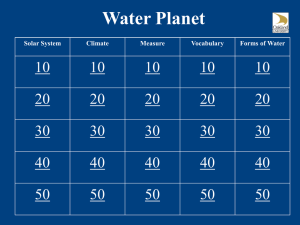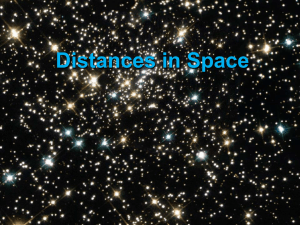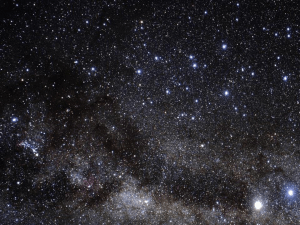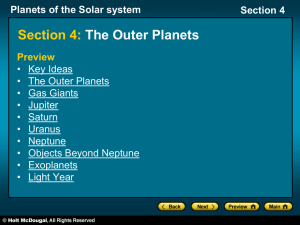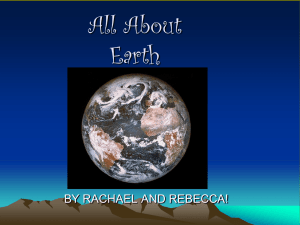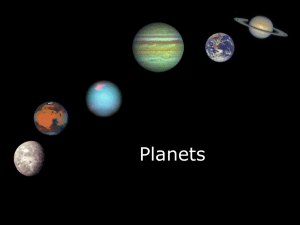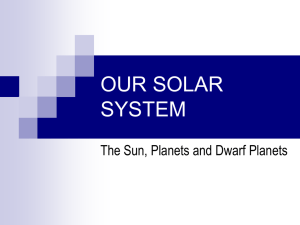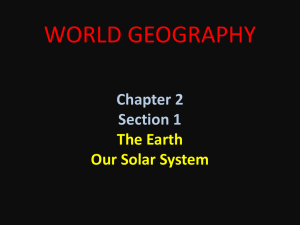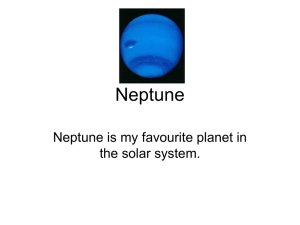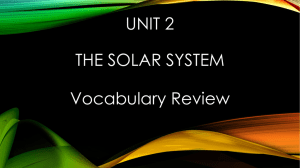Neptune by Nicole Bu and Melissa
advertisement
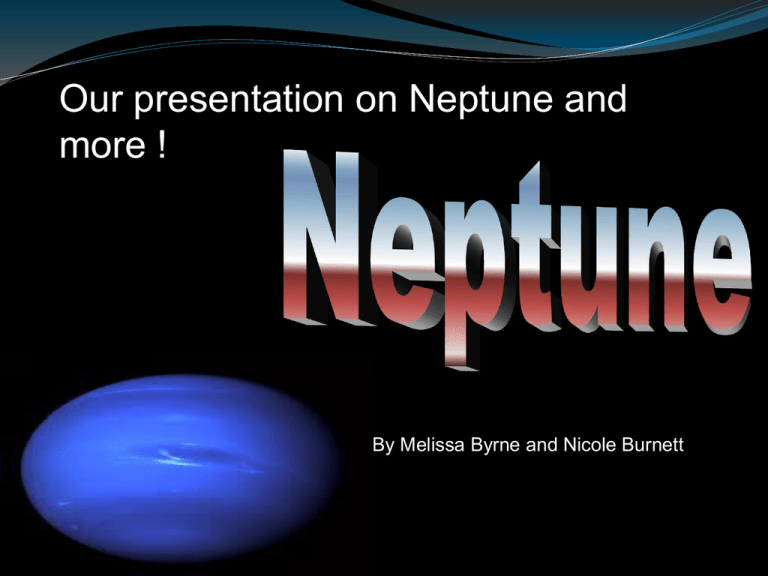
Our presentation on Neptune and more ! By Melissa Byrne and Nicole Burnett Introduction In our solar system, nine planets circle around our sun. The sun sits in the middle while the planets travel in circular paths (called orbits) around it. These nine planets travel in the same direction (counterclockwise looking down from the Sun's north pole). The inner solar system contains Mercury, Venus, Earth and Mars. These four planets are closest to the Sun. The outer solar system contains Jupiter, Saturn, Uranus, Neptune and Pluto. The inner planets are separated from the outer planets by the Asteroid Belt. Our solar system Gas planets The gas planets are mostly made up of gases (hydrogen and helium). These planets are light for their sizes (just like a big air balloon) and move quickly. They have rings and lots of moons. These are also big planets. Rocky planets The rocky planets are mostly made up of rock and metal. These planets are very heavy and move slowly. They also do not have rings and very few moons. These are also small planets. Facts about Neptune In Roman mythology Neptune was the god of the Sea. He is known as Poseidon in Greek mythology. The planet was probably named after the sea gods because of its deep blue color. Neptune's blue color is the result of a gas called "methane" in its atmosphere. Like the other gas planets, Neptune has rapid winds trapped in "bands" of latitude and large storms. Neptune's winds are the fastest in the solar system, reaching 2000 km/hour! Neptune Neptune was discovered in 1846 on the 23rd of September. It was discovered by urbain le verrier,john couch Adams and Johann Galle. Neptune is the eight planet from the sun and the forth largest (by size) of the nine planets. Neptune is smaller in size but its heavier than Uranus. Neptune is a giant gas planet which is most likely made up of various “ices” and rock. Neptune has been visited by only one spacecraft, voyager 2 on august 25th 1989. What we learned (so far) what we have learned is: Well Neptune is the 7th planet away from the sun. I've learned from doing this project that there are rocky planets and gas planets In our solar system 9/8 planets are around the sun Some scientists say That Pluto was never a planet but I think Pluto is a planet. Neptune is a giant gas planet which is most likely made up of various "ices" and rock.
